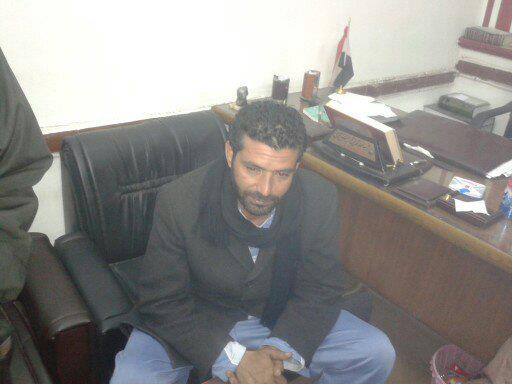By the end of his live interview with “Al-Ashera Masa’an talk show host Mona El-Shazli a little over a week ago, the official Facebook group supporting Dr Mohamed ElBaradei for presidency in 2011 had shot up from around 40,000 to 71,000 members. Less than a day later, it went up to 86,000.
Roughly 40 million Egyptians watched this interview, and the massive effect it had on youth is undeniable. After almost three decades under the same president, Egyptians are in dire need of change. ElBaradei embodies that change. Through him, change can happen if (and only if) everybody works with him. Suddenly it feels that Egypt is no longer owned by a single ruling party and its governing elites.
Most of comments on ElBaradei’s Facebook group are by Egyptians both inside and outside Egypt, expressing support for ElBaradei or trying to find creative ways to spread his vision to the off-line community. The rapid increase in the number of comments is incredible, and can only be compared to the April 6 Facebook group that called for a day of civil disobedience in 2008.
What’s different this time is that the campaign is more mature, with important variables in the equation. Here we have a highly respected symbol to rally around, supported by intellectuals mobilizing a serious campaign despite the stagnant political climate. For the first time in many decades, Egyptians of various orientations are gathering around one person.
ElBaradei’s focus on youth was shrewd because it’s their support he needs the most. In the interview he scored points when he mentioned that he follows their work on YouTube and Facebook, and that he sympathized with the two young men who were temporarily detained while preparing for his welcome. He also apologized for not being able to give a speech immediately after his return as planned, all of which deepened the feeling of respect towards him.
While some compared ElBaradei to US President Barack Obama, others compared him to Mahatma Gandhi or Egyptian nationalist leader Saad Zaghloul. However, some are skeptical, especially that he declared that he is not after the presidency and that he will not set up a new political party. Many of the criticism directed towards him revolved around these points, as well as the fact that he has lived almost half of his life abroad, raising questions over his familiarity with the current situation in Egypt.
ElBaradei is only calling for constitutional reform to guarantee that any capable Egyptian would have an equal opportunity to run in the elections, isn’t this what everybody else is calling for?
But despite the fact that free and fair elections are the pillars of a true democracy, calling for them remains risky.
One can never measure the success of a campaign by the number of members joining a Facebook group. Egyptians are known for being an emotional nation, yet there have been no popular uprisings in Egypt since 1977 against raised bread prices.
ElBaradei highlighted this apathy in the TV interview, when he said that after years of living under a dictatorship, Egyptians can no longer make the connection between their deteriorating social conditions and the need for real political reform, which is the real challenge.
His words have set the wheels of change in motion with loud and determined voices appearing in the independent media, and Egyptians everywhere, on the streets, in offices and buses discussing the possibilities of change.
To keep the momentum of what ElBaradei has started, the following points need to be addressed: First there is a need for proper organization for those who want to help but have no idea how to do so. Joining a Facebook group is only the first step, it can’t be the last; otherwise they will continue to remain as scattered and random as previous groups.
Second, ElBaradei must start presenting a specific vision. Naturally it’s too soon to ask him for an electoral program, but he still needs to make his vision clear in people’s minds. He needs to answer the urgent question: “What are the steps he will take to change the constitution?
Third, the most trusted intellectuals have to show their full support for ElBaradei and through their networks, they will help him spread his message to a wider base of Egyptians.
I will conclude with the words of political scientist Hassan Nafa’a in an article commenting on the popular reception of ElBaradei at the airport two weeks ago.
“Yesterday at Cairo Airport I saw Egypt voting for a new third way . aiming for complete democratization based on citizenship and separation of powers, transparency and the rule of law. a democratic system which allows anybody, whatever their status, to practice their rights. Basically the freedom to vote for whoever they want under judicial supervision.
“And because those movements found in Dr ElBaradei the right person to lead the much needed transition period to make this system reachable, they decided to receive him at the airport, hoping that he will march them towards democracy.
“Does Dr ElBaradei understand the difficulty of the mission which fate set out for him? And the other question is: Is he capable to handle this mission? This is what time will answer, but I think that we should all give him a hand. Are we ready?
Eman AbdElRahman is a blogger and Global Voices author, interested in new media, women’s rights and the democracy in Egypt. She is also an engineer by profession. Read her blog at http://lastoadri.com/blog


